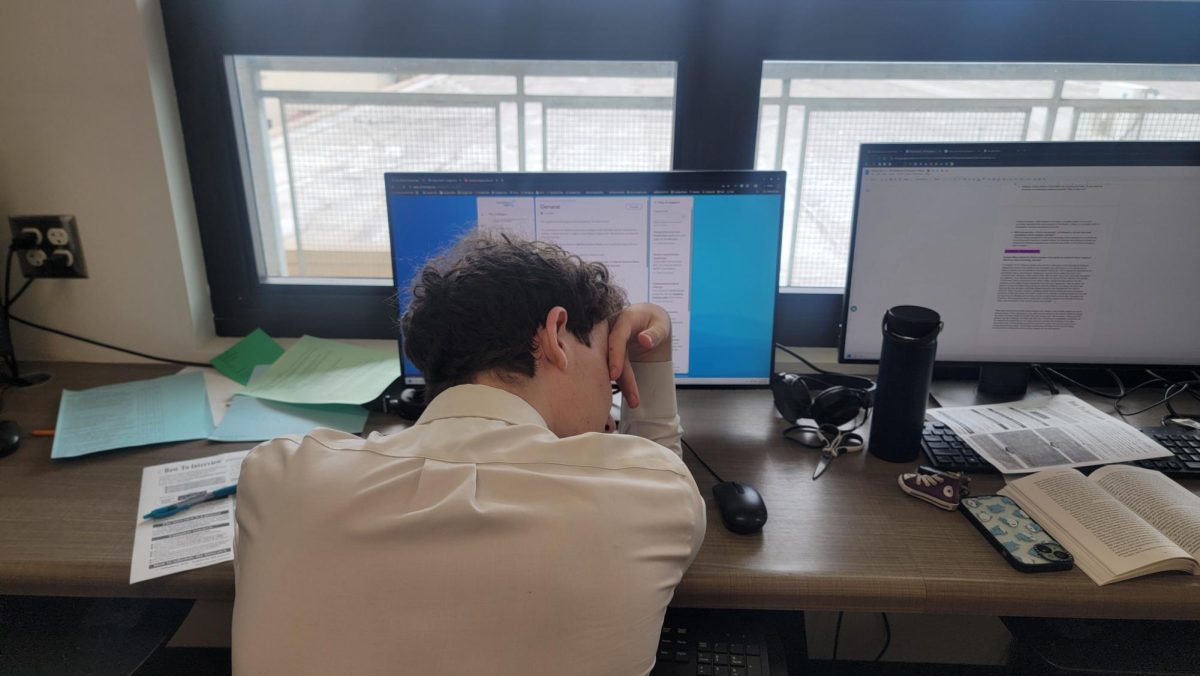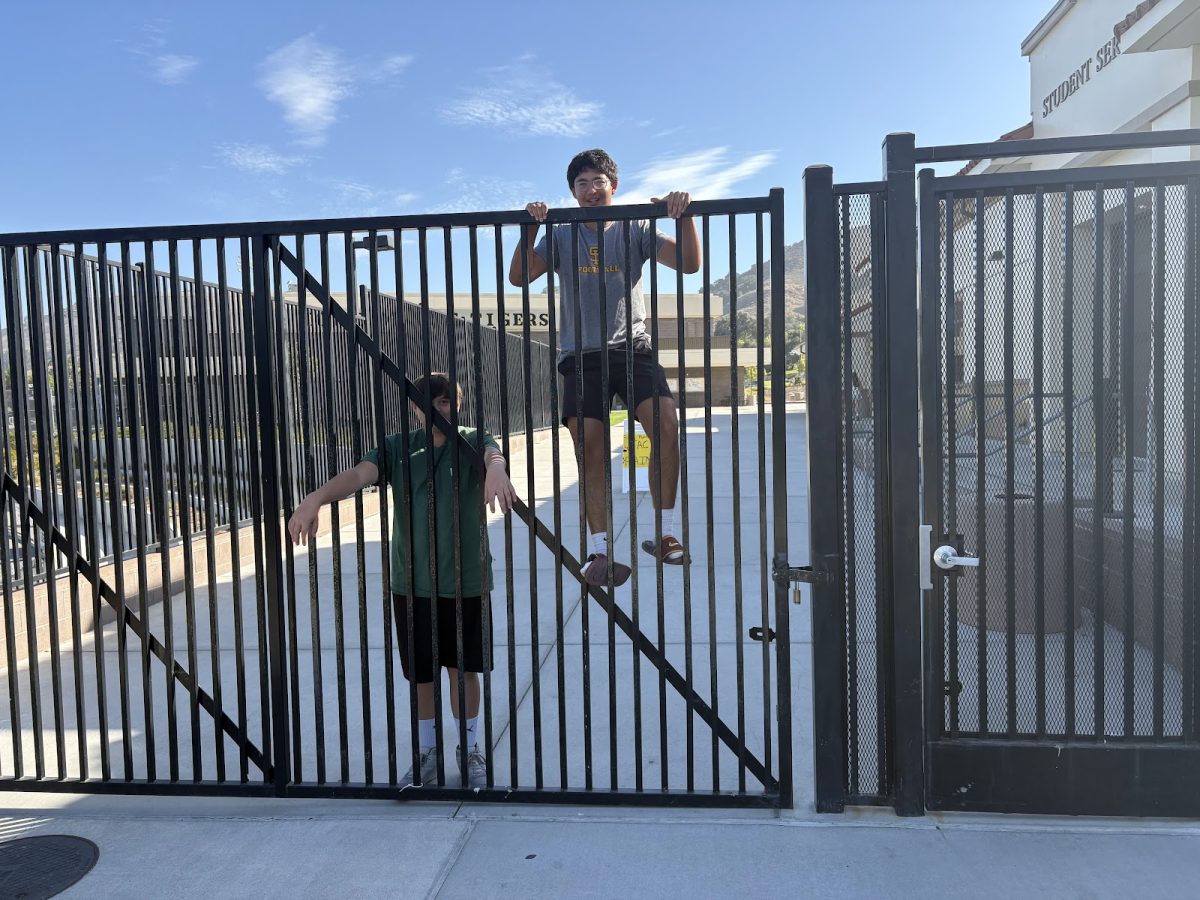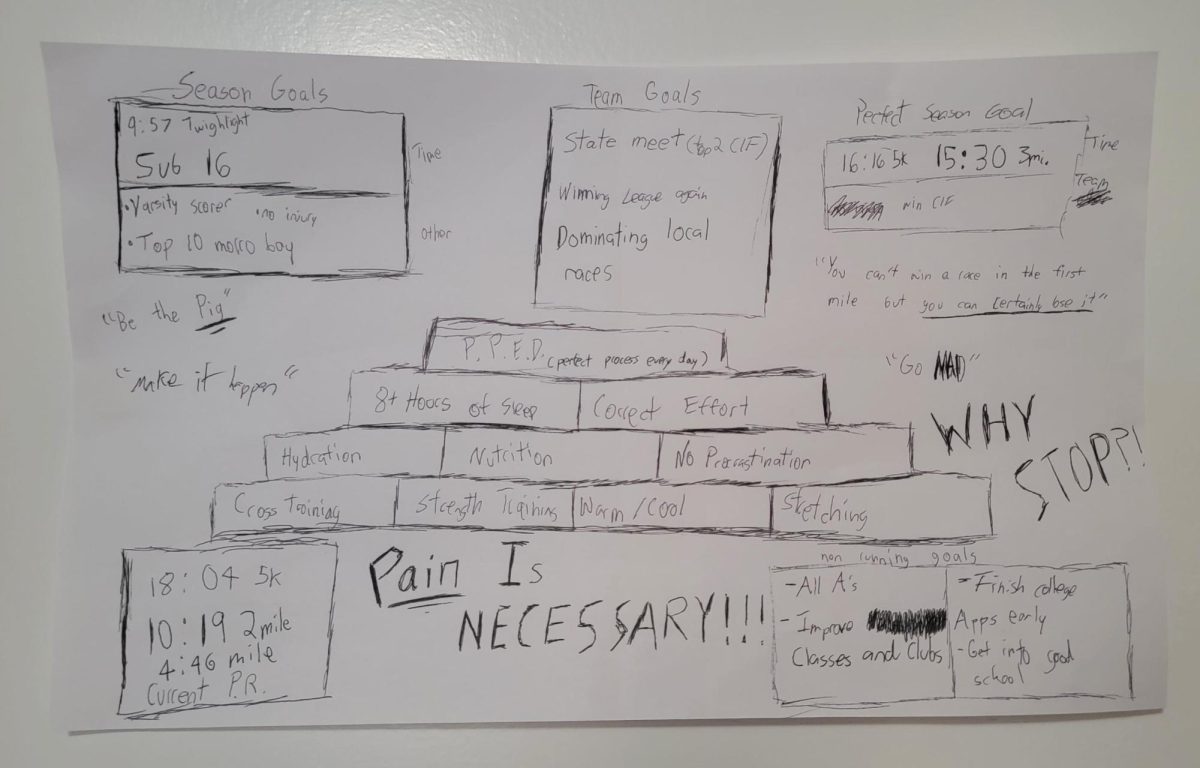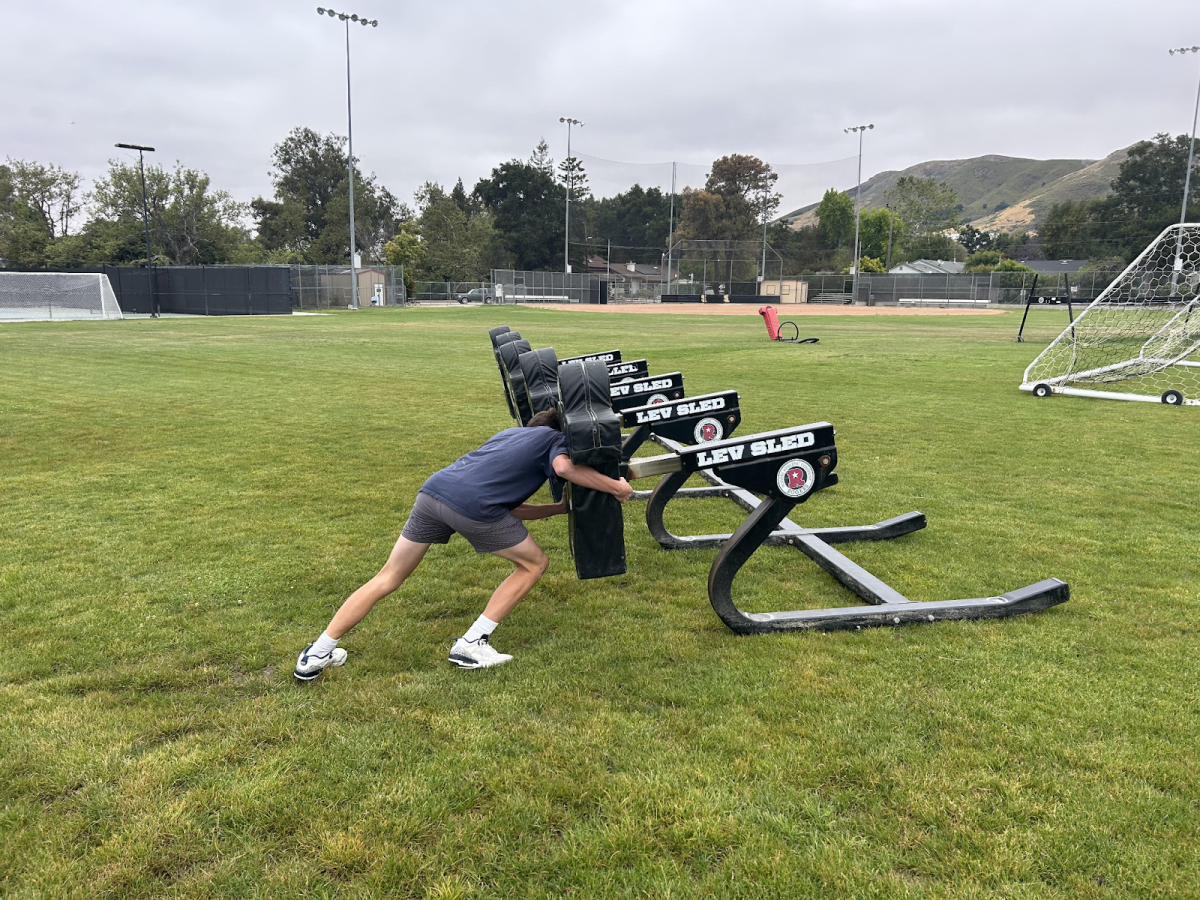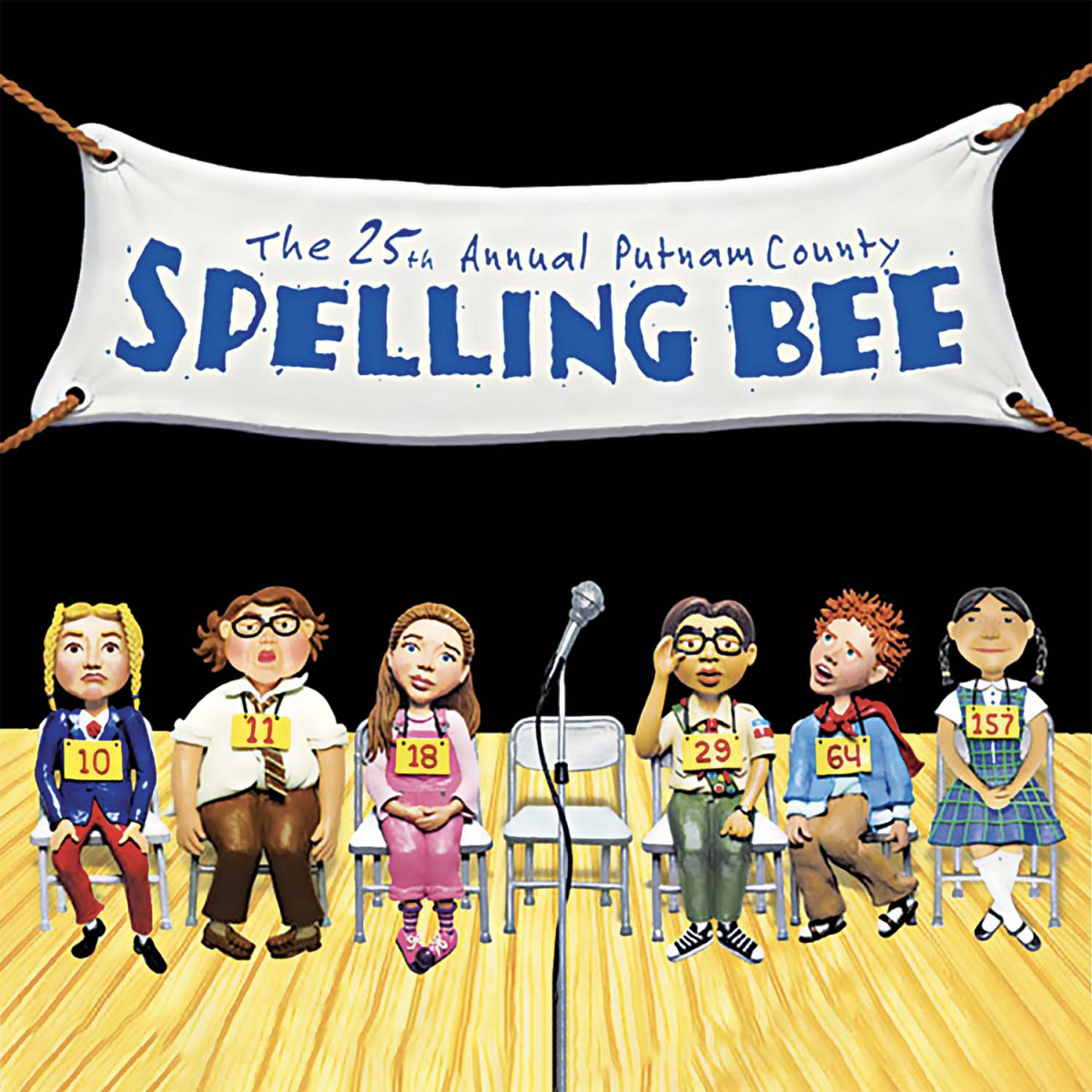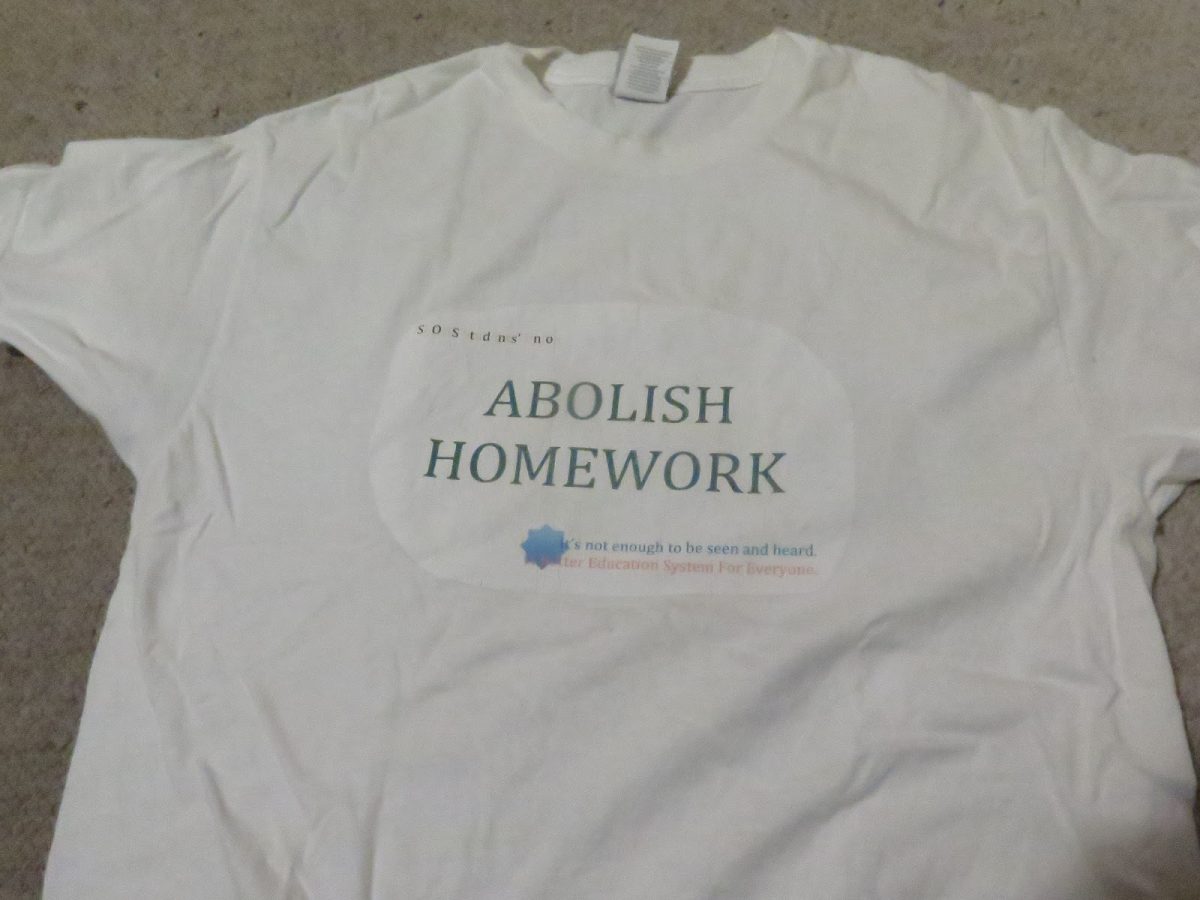Are you only allowed one passion? The answer seems obvious to most people: No. But so far, my high school experience has shown me the opposite. If you think about it, it is only ever the richest people who start multiple businesses (thus multiple passions) while the majority of people end up having only one job (one passion). It seems to me that this might begin in high school, a time in which schools are trying to encourage students to attach themselves to one idea of who they want to be. How does this happen? The answer may lie in one of the greatest downfalls of our education system: superfluous homework.
Many people at SLO high have very busy schedules, and many of us do not get to bed until 11 p.m. or 12 a.m. at night. This correlates to the fact that the majority of students at SLO High are involved in one or more sports. But are people who are involved in these sports bound to having that be the only thing that they can be passionate about for that trimester? Students definitely have some free time outside of sports but that time is constantly getting wasted by often extraneous homework. If someone is doing a sport or extracurricular activity, they will need to spend the rest of their day getting homework done. When I talked to SLOHS principal Leslie O’Connor about what I believed to be an excessive amount of homework, he asked if I was doing a sport. He told me that I might have less time for homework (causing me to need to stay up later) because I am doing cross country. A question that I thought of after this conversation was, “What if I want to have other passions aside from cross country? Do I have to give up cross country to be able to have these passions?” I am passionate about many things, but I cannot devote enough time to all of them because of my busy schedule. I am now wondering how many people that, like me, cannot pursue multiple passions because of their work for school.
This lack of time due to excessive homework is one of the largest problems with our education system today. Cal Poly Professor of Education Mike Reuf said, “There seems to be inconclusive evidence regarding homework…how much or if any at all should be assigned. If a student does not understand a concept, asking him/her to do homework is logically not an effective pedagogical method. If the student does, however, understand a concept, then one could also question the meaning of him/her to complete homework. To what end?” The problem of homework not being very effective is not the only issue. As I write this article at 10:23 p.m. I am getting deprived of sleep. A teenager needs at least nine hours of sleep each night, and many people at SLOHS are getting less than eight.
Excessive homework as a method of teaching is ineffective. For most students, homework is not expanding their education experience and it might be depriving them of their chance to pursue many things to become well rounded people. Psychologist Alfie Kohn wrote a book on this called The Homework Myth. In this book, he compiled a significant amount of evidence against homework, and he argues why homework does not work in our education system. We need to seriously think about how our education system affects its students outside of school. For example, this might mean imposing a 10 minute limit on how much homework each teacher can give per night, if not eliminating homework altogether.
We need to think about how our education system can simultaneously educate as well as support students, to make sure that it allows time for students to pursue all of their’ passions.


